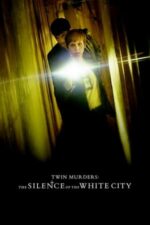The Ghosts We Carry: When the Past Refuses to Stay Buried
Isn’t it fascinating how often stories circle back? Not just plot twists, but thematic echoes – that persistent feeling that a character's present is inextricably linked to something they can’t quite shake off? I’m talking about being “haunted by the past,” and it’s a cinematic obsession as old as cinema itself. It’s more than just flashbacks; it’s a pervasive atmosphere, a sense of dread or regret that colors everything.
Think about The Dogs. On the surface, it's a tense thriller about survival against both human and animal threats. But beneath the surface lies something deeper: the inherited trauma of a fractured family, the weight of a father’s instability echoing through generations. It’s not just about escaping physical danger; it’s about confronting the ghosts that cling to a place – and to people. That feeling is universal, isn't it? We all carry baggage, some heavier than others.
What I love about this theme is how diverse its expression can be. Call of the Vulture, for example, tackles it with a surprising lightness. Angel’s journey isn’t one of gothic horror but of self-discovery, using humor to navigate painful memories and ultimately finding strength in acknowledging her past. It's a reminder that confronting our history doesn't always have to be a grim affair; sometimes, laughter can be the most powerful exorcism.
Then you have films like Night at the Eagle Inn, which leans into full-blown supernatural chills. The twins’ quest isn’t just about solving a mystery; it’s about understanding their own identities, shaped by a father's disappearance and the secrets of that eerie inn. It reminds me a little of Shirley Jackson’s “The Haunting of Hill House,” where the house itself is a manifestation of psychological trauma.
Even something seemingly straightforward like Guns Up explores this idea. The protagonist isn’t just trying to save his family; he's battling the consequences of past choices, attempting to redeem himself from a life lived on the wrong side of the law. It’s about how our actions ripple outwards, creating a legacy that can either bind us or set us free.
And let’s not forget The Chalk Garden. That film is so beautifully understated; Laurel's emotional turmoil isn’t shouted from the rooftops but subtly reflected in the neglected garden itself. The arrival of the governess becomes a catalyst for healing, suggesting that confronting the past – even if it’s painful – can lead to growth and renewal. I remember seeing this as a teenager and being struck by how powerfully visual storytelling could convey such complex emotions.
Finally, The Whip and the Body offers a darker take, exploring revenge and the cyclical nature of familial abuse. Kurt's return isn't about closure; it’s about perpetuating a legacy of pain. It’s a stark reminder that sometimes, the past doesn’t just haunt us – it actively seeks to consume us.
Ultimately, films that explore being “haunted by the past” resonate because they tap into something deeply human: our longing for understanding, our struggle with regret, and our enduring hope for redemption. They remind us that we are all, in some way, shaped by what came before – and it’s up to us to decide whether those ghosts will define us or inspire us.







































